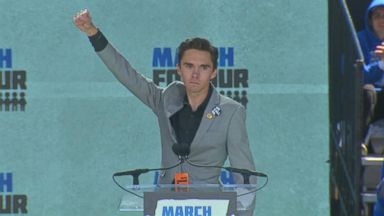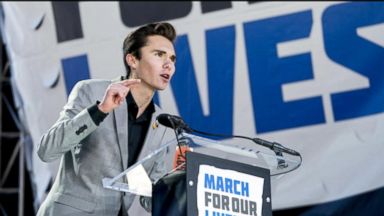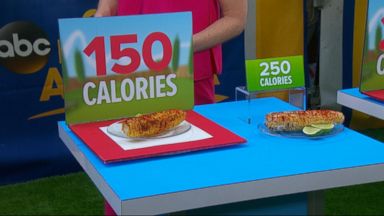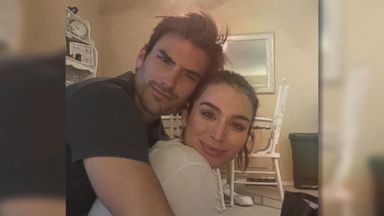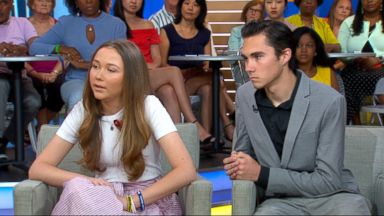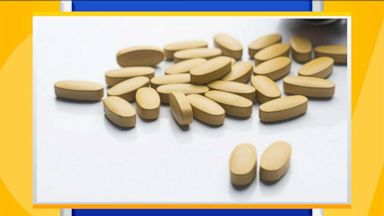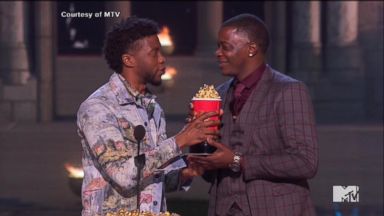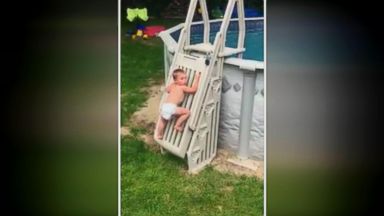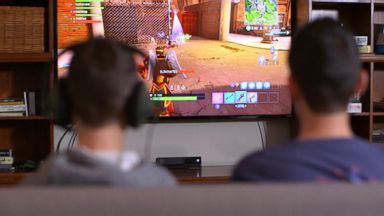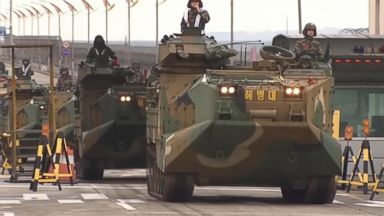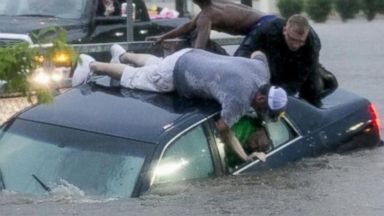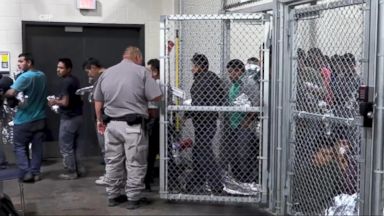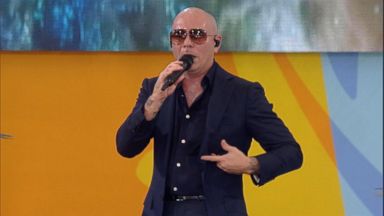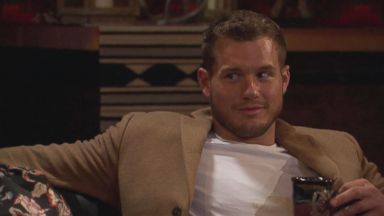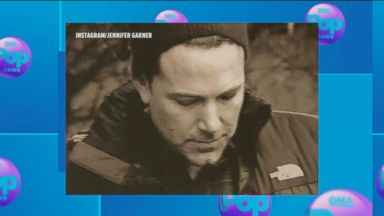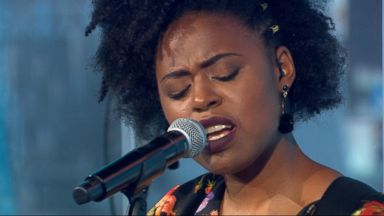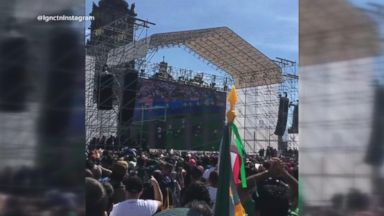David and Lauren Hogg talk about becoming activists
Coming up in the next {{countdown}} {{countdownlbl}}
Coming up next:
{{nextVideo.title}}
{{nextVideo.description}}
Comments
Related Extras
Video Transcript
Transcript for David and Lauren Hogg talk about becoming activists
We'll turn now to the students. Brother and sister whose lives changed in an instant. David and Lauren hogg are siblings from parkland, Florida, they're turning tragedy into action. But first, take a look at how their movement that began. To those politicians supported by the NRA who allow the continued slaughtered of our children I say get your resumes ready. Reporter: He's become one of the most prominent gun control advocates, a role David and his younger sister Lauren took up after they survived. We realized this wasn't a drill. Reporter: 17 people would lose their lives that day at Marjory Stoneman Douglas high school. He would go on national TV pleading for this. We're children, you guys are the adults. You need to take some action. Reporter: Refusing to let the world forget, hogg and his fellow student activists formed March for our lives. Demanding stricter gun control laws, but the students have also become part of the particularizing political debate. Some have become targets of conspiracy theories. But David and his sister Lauren remain undeterred, dismissing their critics, instead focusing on the future. We can and we will change the world. I'm here now with David and Lauren hogg. They just started their tour to register people. The book is called never again. Welcome to "Good morning America." I wanted to start with you, David, we saw that moment play on national television, the shooting took place, you were all in the middle of incredible did stress and yet you got on your bike that morning and you stood in front of that camera and made that plea. What made you get on that bike and do that. Essentially, what happened after the shooting occurred, later that day once I made sure my family was all home, because I was at school and I went home, my sister and my father and my mother were finally at home and I knew that they were okay and safe. I couldn't be around listening to my sister cry, having lost four friends. I couldn't stand around. I felt -- I had to speak up what the issues at hand. My education from speech and debate, debating these topics through that amazing program. I felt a need to speak up for those who couldn't at the time so they could eventually when the time came around they could wipe away their tears. And buoyed by your skills in that deintat class. Lauren, you both lost people you knew. When you saw brother stand up, what did you think? I was so proud. At the very beginning we couldn't speak for ourselves. We continue do it. I was so proud to turn on the TV and see my brother and see all our friends come together and be the voice that friends who passed away if they were here. For a lot of people watching at home, this puts this in perspective, neither of you were alive during columbine, you lived through sandy hook. You talked with a columbine survivor. A week after the shooting I met with a columbine survivor, she said, I'm so sorry but you're part of this club now, you're part of this club that everybody is part of that's affected by gun violence. We'll have to work hard to make sure nobody else has to join this club. David, some people you're infringing upon their second amendment right. What would you say to them as on opening to a dialogue to bridge the divide. I'd say back a couple decades ago, where you could smoke everywhere and people were getting cancer from secondhand smoke, they implemented regulations that made it so you didn't inflict those people around you by doing that. People can still smoke. I think in the same way we can have those regulations, we can have regulations like universal background checks and commonsense gun laws that can save lives and save our future and our kids. You're not asking to take guns away you're asking for universal background checks. You've dealt with the names, the conspiracy thee theories saying you're a paid crisis actor. There's one that we're the same people. In dealing with sort of what's come at you, you can handle the name-calling. I'm curious what it says about the country we're in right now, is there a lesson in that you can offer to others? I think for everybody I spend father's day, March for our lives was in Ferguson, Missouri with Mike Brown's father. Close your eyes and imagine the person closest to, imagine the person you hold so close, now imagine losing that person as a result of gun violence. This country regardless of what's happening, needs to practice empathy and understand, regardless of where you come from and who you are, suffering is the same. In the end, we cry the same tears. We're all human beings. We need to treat each other as such. Lauren, the last question, people are so polarized on so many issues, do you believe there's common ground in this country? I absolutely do. I think no matter whether you're Democrat or Republican, like David said, we all bleed the same blood, we all cry, we all have children, something that we can find common ground on. Lauren, David, thank you for being here. The book is "Never again."
This transcript has been automatically generated and may not be 100% accurate.
